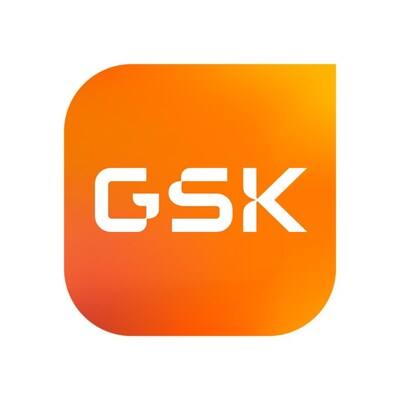- Findings reveal a 15% elevated risk of shingles among adults with cardiovascular disease
- Results show the risk of shingles increased up to 27% among adults with two or more chronic conditions compared to those without such health issues
MISSISSAUGA, ON, Oct. 23, 2025 /CNW/ - Results from a new retrospective study (VEO-000477) adds to research uncovering a relationship between cardiovascular disease (CVD) and herpes zoster, commonly referred to as shingles. The insights from the study offer better understanding of the incidence and risk of shingles among those with chronic conditions, including CVD. Findings of the study are being shared this week at the Canadian Cardiovascular Congress taking place in Quebec City.
Shingles, caused by the reactivation of same virus that causes chicken pox, is generally estimated to impact 1 in 3 people in their lifetime. Study findings revealed that having heart disease increased an individual's chances of getting shingles by 15%. Among those who had two or more chronic conditions including CVD, asthma, diabetes, or COPD, the risk of shingles increased up to 27%. According to the data, the elevated rate of shingles among CVD patients was most pronounced in those aged 65 and older, which is consistent with immunosenescence - the natural weakening of the immune system that occurs as we age and decreases the ability of older adults to fight off infections, putting them at higher risk of severe illness.1
Dr. Mark Loeb, Professor, Faculty of Health Sciences at McMaster University and lead study author said: "The results of this research underscore the importance of recognizing the complex interplay between chronic conditions like cardiovascular disease and shingles. Uncovering this link may help inform clinical practice and could ultimately lead to better preventive care against shingles for vulnerable populations."
This study adds to the growing body of evidence that sees a link between CVD and shingles. A separate study showed a 19% risk of major adverse cardiac and cerebrovascular events in the year following a shingles episode, suggesting a bidirectional relationship between the two conditions.2
Dr. Michelle Horn, Country Medical Director, GSK commented: "For the estimated 1 in 12 - or 2.6 million - Canadian adults who are living with diagnosed heart disease3, and the more than 8 million with multimorbidity4, these findings provide crucial insight on health risks they may face and reinforces the importance of understanding and addressing the broader impact of shingles on patients' daily lives and long-term health."
The complete study manuscript will be submitted for publication in a peer-reviewed journal, with release anticipated before the close of 2025.
About VEO-000477
The VEO-000477 study was conducted by GSK in collaboration with Dr. Mark Loeb from McMaster University, Dr. Philip Baer from the Ontario Medical Association, and with support from IQVIA Solutions Canada Inc. It involved a retrospective analysis of administrative medical records from ICES, formerly the Institute for Clinical Evaluative Sciences, with incident herpes zoster cases among Ontarians >18 years of age captured over 11 years from April 2011-March 31, 2022.
About shingles (Herpes Zoster)
Shingles is the common name for herpes zoster and is caused by the reactivation of the varicella-zoster virus (VZV), the same virus that causes chickenpox.5 90% of adult Canadians have had chickenpox--and thus can get shingles, with about 1 out of 3 people experiencing shingles in their lifetime.6 Shingles typically presents as a rash, with painful blisters across the chest, abdomen or face.7 The pain is often described as aching, burning, stabbing or shock-like.8
Along with discomfort from the rash, the disease causes underlying pain in the nerves, which people describe as burning, throbbing, or stabbing.9 The pain can be severe enough to interfere with work and other everyday activities as basic as getting dressed.10 Up to 40% of people with shingles report at least one complication from the illness such as post-herpetic neuralgia (PHN), a long-lasting nerve pain that can last weeks or months and can occasionally persist for several years.11 More rarely, shingles can lead to bacterial skin infections, weakness, muscle paralysis, and loss of hearing or vision. 12
About GSK
We are a global biopharma company with a purpose to unite science, technology and talent to get ahead of disease together. Find out more at www.gsk.ca.
Cautionary statement regarding forward-looking statements
GSK cautions investors that any forward-looking statements or projections made by GSK, including those made in this announcement, are subject to risks and uncertainties that may cause actual results to differ materially from those projected. Such factors include, but are not limited to, those described in the "Risk Factors" section in GSK's Annual Report on Form 20-F for 2024, and GSK's Q2 Results for 2025.
1 Harpaz R, et al. Advisory Committee on Immunization Practices (ACIP), Centers for Disease Control and Prevention (CDC). Prevention of herpes zoster: recommendations of the Advisory Committee on Immunization Practices (ACIP). MMWR Recomm Rep. 2008;57(RR-5):1-30.
2 Horev, A., Horev, A., Gordon-Irshai, A. et al. Herpes zoster and long-term vascular risk: a retrospective cohort study. Sci Rep 13, 2364 (2023). https://doi.org/10.1038/s41598-023-29667-w
3 Government of Canada. Heart Disease in Canada - Canada.ca. Available at: https://www.canada.ca/en/public-health/services/publications/diseases-conditions/heart-disease-canada.html
4 Government of Canada. Canadian Chronic Disease Surveillance System 2025. Available at: https://health-infobase.canada.ca/ccdss/data-tool/
5 Harpaz R, et al. Advisory Committee on Immunization Practices (ACIP), Centers for Disease Control and Prevention (CDC). Prevention of herpes zoster: recommendations of the Advisory Committee on Immunization Practices (ACIP). MMWR Recomm Rep. 2008;57(RR-5):1-30.
6 National Advisory Committee on Immunization. STATEMENT ON THE RECOMMENDED USE OF HERPES ZOSTER VACCINE. An Advisory Committee Statement (ACS). Can Commun Dis Rep. 2010;36(ASC-1):1-19.
7 Mueller NH, et al. Varicella Zoster Virus Infection: Clinical Features, Molecular Pathogenesis of Disease and Latency. Neurologic Clinics. 2008;26;675-697
8 Harpaz R, et al. Advisory Committee on Immunization Practices (ACIP), Centers for Disease Control and Prevention (CDC). Prevention of herpes zoster: recommendations of the Advisory Committee on Immunization Practices (ACIP). MMWR Recomm Rep. 2008;57(RR-5):1-30.
9 Shingles/Herpes Zoster Vaccine (Shingrix®) Fact Sheet. Hastings Prince Edward Public Health. January 6, 2021. https://hpepublichealth.ca/wp-content/uploads/2020/01/
10 HealthLinkBC, July 31,2023
11 National Advisory Committee on Immunization. Updated NACI Recommendations on the Use of Herpes Zoster Vaccines. June 2018. Available at: https://www.canada.ca/content/dam/phac-aspc/documents/services/publications/healthy-living/updated-recommendations-use-herpes-zoster-vaccines-eng.pdf. Accessed April 5, 2024
12 National Advisory Committee on Immunization. Updated NACI Recommendations on the Use of Herpes Zoster Vaccines. June 2018. Available at: https://www.canada.ca/content/dam/phac-aspc/documents/services/publications/healthy-living/updated-recommendations-use-herpes-zoster-vaccines-eng.pdf. Accessed April 5, 2024
SOURCE GlaxoSmithKline Inc.






